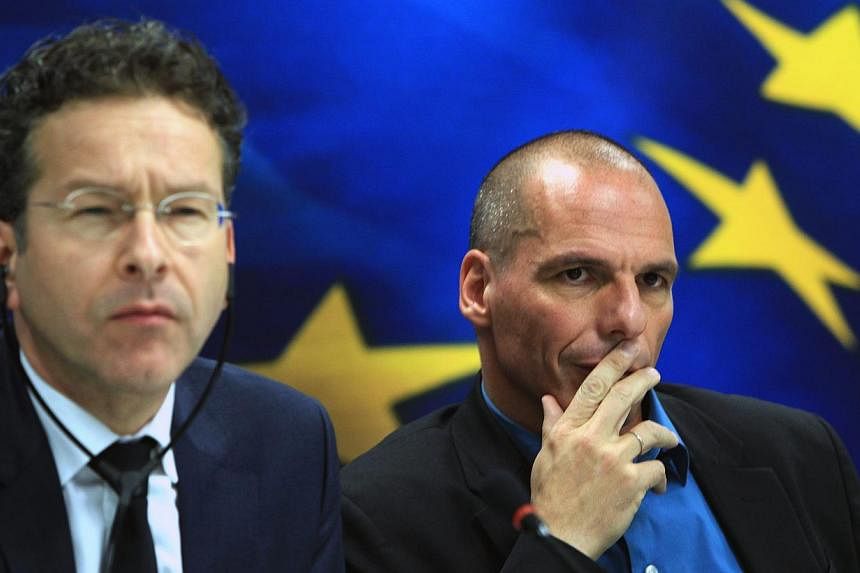NEW YORK (AFP) - The euro retreated against other major currencies on Friday as struggling Greece refused to meet with its international creditors and rejected fresh loans, and the euro zone showed weaker inflation.
The finance minister of Greece's new anti-austerity government, Mr Yanis Varoufakis, said that despite warnings Greece would shortly run out of money, his government preferred to do without the instant fresh cash, and instead renegotiate the entire bailout package.
"This government was elected on the basis of analytically questioning the very logic of the programme now being applied," he said, referring to the reforms and budget cuts demanded by Athens's international troika of creditors - the European Union, the European Central Bank and the International Monetary Fund.
"Our first act as government will not be to reject the logic of questioning this program by requesting to extend it," he added.
At a strained press conference with Eurogroup chief Jeroen Dijsselbloem, Mr Varoufakis said Athens was willing to negotiate with its lenders but not with the troika auditors who he said were merely a "committee built on rotten foundations".
Athens had been promised another €7.2 billion (S$11 billion) in funds from the troika if it completed reforms required by its lenders by February 28.
"Greece is clearly creating more headaches for the euro zone because if they do not allow the troika into the country, they may not receive the next aid disbursement that they desperately need to avoid default," said Ms Kathy Lien of BK Asset Management.
Adding to the gloom over the euro zone was the latest official data showing consumer prices fell by a record 0.6 per cent in January, after a drop of 0.2 per cent in December, suggesting deflation could be taking hold in the 19-nation currency bloc.
The US dollar, meanwhile, was little changed after the United States Commerce Department reported that the US economy grew at a 2.6 per cent annual pace in the fourth quarter, slower than the 3.2 percent expected by economists.
"There were aspects of the report that should keep optimism around the US economy (at least relative to the rest of the world) elevated through early-2015," said Mr Christopher Vecchio, a currency analyst at DailyFX.

